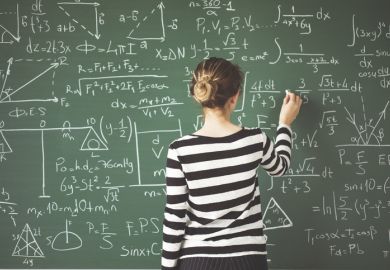Among the ten of the 28 volumes of this edition of the papers and manuscripts of Bertrand Russell devoted to his logic and philosophy, this one is uniquely important; for we see him released by his own volition from the neo-Hegelian philosophical orthodoxy of his time and launching himself on his positivistic reform, with logic and the philosophy of mathematics as the first testing ground.
During the period covered by this volume he came to his "logicist" philosophy, that all pure mathematics could be both defined and developed within a certain conception of logic. To be expounded in his book The Principles of Mathematics (1903), logicism dominates this volume. The other pieces treat of space and time, and some general philosophical questions.
Russell's articles are rendered in English; but he published some of them in French, and those versions are included in more than 200 pages of appendixes. Some related drafts in English are also given here, and shorter notes on various topics including his pioneering teaching of logic at Cambridge. His many symbols are superbly rendered throughout the volume by the typesetters of the Russell Project at MacMaster University in Canada, who deserve special congratulations. (Some original folios are illustrated; and in a nice touch, some of his handwritten diagrams and schema are included in the text.) What gave Russell such a powerful stimulus for productive work during this period? A well-established consensus among modern philosophers stresses the profound influence on him of the work of the mathematician-philosopher Gottlob Frege, who anticipated some aspects of his logicism. However, Russell told a different story in his autobiographical writings, one of which is quoted by the editor in his excellent general introduction: that the principal stimuli were the mathematical logic of Giuseppe Peano and the set theory of Georg Cantor, with Frege's work at that time on the sidelines. The accuracy of Russell's recollection is amply borne out by the texts here: the proper understanding of Frege's place in Russell's thought will be made clear in the next volume of the edition, covering the years 1903-05.
Peano's programme of "mathematical logic" (his phrase in this context) dates back to the late 1880s. He and his followers at Turin University had been rendering logic in symbolic (and also axiomatic) form, with Cantor's set theory as a major tool; they then symbolised various mathematical theories with these means. Their undertaking was the great discovery for Russell, and we can fix his Damascus moment precisely: the morning of Friday August 3 1900, when work by Peano and three disciples was given at the International Congress of Philosophy in Paris. Those presentations, together with discussions in other sessions, gave Russell the light on the foundations of mathematics that he had been seeking for some years, and launched him on his logicist programme.
The formulation of properties in "Peanist" (Russell's name) logic was one principal advantage for his purposes. In traditional syllogistic logic "all Greeks are mortals" is regarded as saying something about Greeks; however, Peano's formulation, "for all x, if x is a Greek then x is mortal", allows the variable x to range over any suitable range of discourse, thus rendering logical implication both more uniform and more powerful.
Cantorian set theory also came in: instead of the traditional view that Socrates was part of the class of Greeks, he was now a member of the Cantorian set of Greeks, where membership in it of an individual such as he was distinguished from the inclusion of subsets of Greeks within it. Russell had known of Cantor's work for some years, but had been chary of its utility; its legitimation by the Peanists, together with its evident power in mathematics itself, thrust it to the centre of his concerns.
Russell's initial contributions to Peanist logic was stimulated by his interest in the ordering of objects, and in relations which may express such ordering; order in space and time had been the subject of his own Paris lecture (Paper 5 here). He soon wrote two papers enriching logic with a theory of relations and applying it to Cantorian ordered sets; both appeared in a journal which Peano edited (Papers 8 and 12, 1901 and 1902). His extension of logic helped him to formulate his logicist thesis; the Peanists always distinguished mathematical from logical notions, but the difference was not always clear (especially concerning set theory), and Russell decided that it did not exist. All mathematical theories, including set theory, could be expressed within this extended logic, which could also furnish all devices needed for proving and defining.
However, set theory brought bad as well as good news. Sometime around the spring of 1901 while playing a variant on a proof method of Cantor, Russell discovered the paradox which now bears his name: namely, that the set of all sets which do not belong to themselves belongs to itself if and only if it does not do so. (No original manuscripts of this result seem to survive.) This paradox, and others which he then collected, were icebergs to his logicist steamship; avoiding them added great complications to the book-length presentation of logicism that he wrote during these years. The Principles of Mathematics (1903) is a convoluted and rather heterogeneous book: analysis of its manuscript by the Russell archivist, Kenneth Blackwell, has revealed it to be a motley of texts, some sections written specifically for the book but others transferred from earlier drafts.
Part one of this volume, containing more than 200 pages of finally rejected drafts, provides essential sources for following the development of his thoughts on logicising some basic branches of mathematics, such as number, quantity, and space and time.
We also see versions of some famous statements in the book; in particular, the renowned though perplexing opening definition, here in the form that "Pure mathematics is the class of all propositions of the form 'a implies b', where a and b are propositions each containing at least one variable, and containing no constants except logical constants for such as can be defined as logical constants".
Justifying this claim would preoccupy him for more than a decade until the Principia Mathematica, which he and A. N. Whitehead were to give to the world between 1910 and 1913.
I. Grattan-Guinness is professor of the history of mathematics and logic, Middlesex University.
Toward The Principles of Mathematics, 1900-1902: The Collected Papers of Bertrand Russell, Volume Three
Editor - Gregory H. Moore
ISBN - 0 415 09405 4
Publisher - Routledge
Price - £120.00
Pages - 895pp
Register to continue
Why register?
- Registration is free and only takes a moment
- Once registered, you can read 3 articles a month
- Sign up for our newsletter
Subscribe
Or subscribe for unlimited access to:
- Unlimited access to news, views, insights & reviews
- Digital editions
- Digital access to THE’s university and college rankings analysis
Already registered or a current subscriber?



